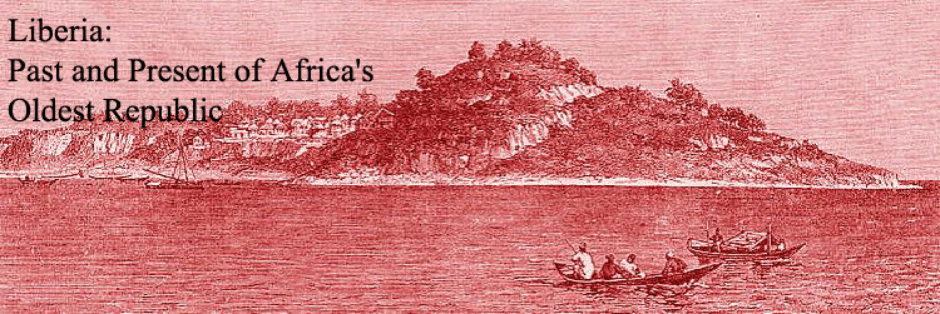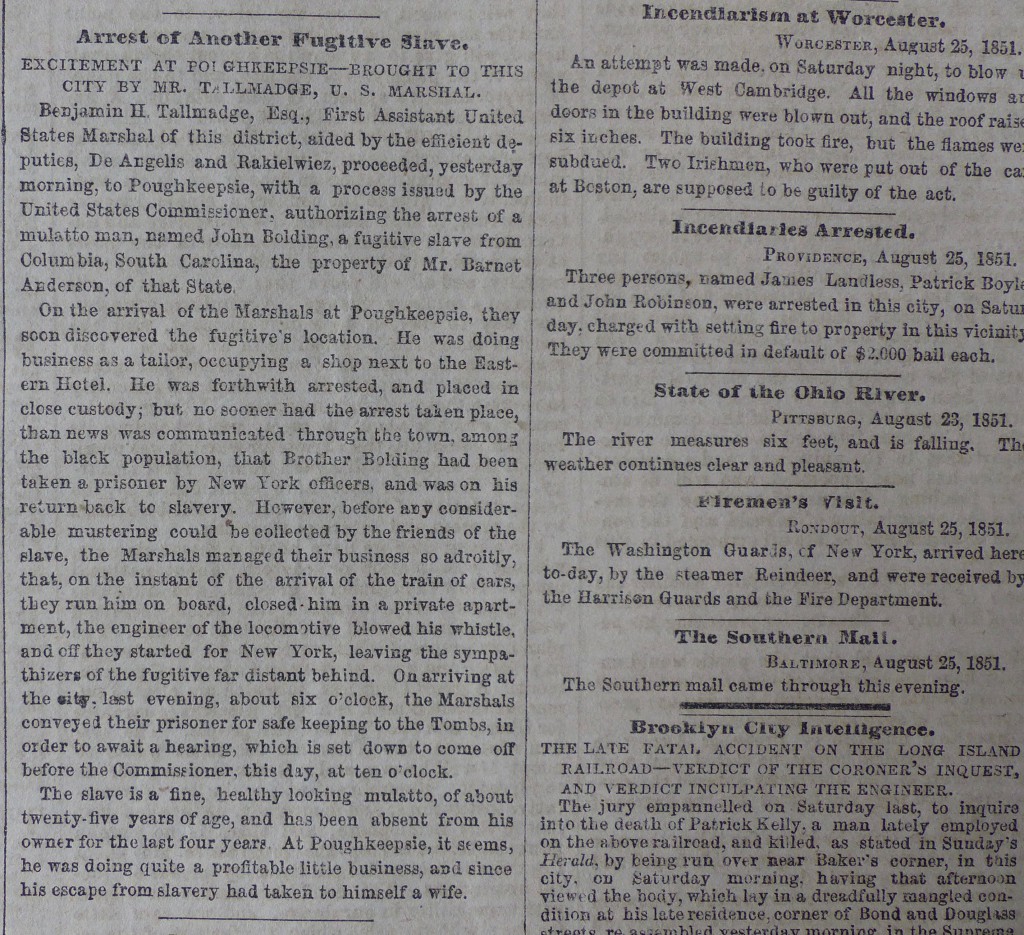Arrest of a fugitive slave
Browsing through old American newspapers searching for articles on the newly created republic of Liberia (1847), I read with a shock a headline that gave me goose pimples. “Arrest of Another Fugitive Slave” I read on page 3 of The New York Herald, dated August 26, 1851.
It was the chilling story of the arrest of John Bolding, a fugitive slave from Columbia, South Carolina, who – according to this newspaper – “was the property of Mr. Barnet Anderson of the same State”. Some four years earlier, John Bolding had run away from his ‘boss’. When arrested, in Poughkeepsie (NY), John Bolding was working successfully as a taylor, occupying a shop next to the Eastern Hotel. At Poughkeepsie, it seems, he was doing quite a profitable little business and was happily married.
His arrest incited his black friends to come to his rescue but before they could intervene the police hastily put John Bolding on a train to New York. The train left and at the time of the publication of the newspaper the ultimate fate of the fugitive slave was yet undecided.
Unfortunately, the case of John Bolding was one of many. The slavery issue in the United States would only be settled with the Emancipation Proclamation, issued by president Abraham Lincoln (1863). The Emancipation Proclamation changed the federal legal status of more than 3.5 million enslaved Afr0-Americans in the southern states. However, it did not end discrimination and racism in the United States, be it in the north or the south.
Notwithstanding the lack of civil rights most Afro-Americans decided to stay in the United States and build up their lives in the country where they were born. Emigration to Liberia came virtually to a stand-still.
The original 1851 article:

